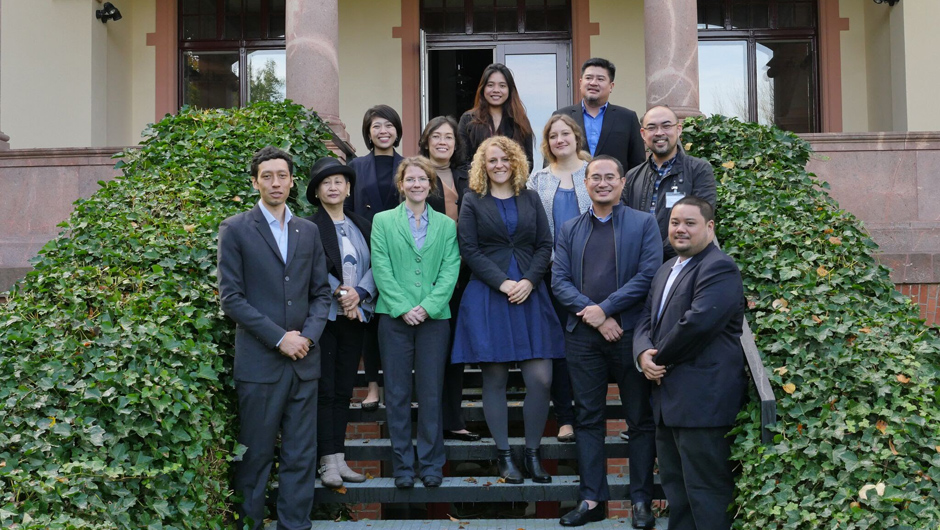Deconstructing German Federal System, Untwisting PH Federalism Debate

On 14-21 October 2017, Friedrich Naumann Foundation’s (FNF) International Academy for Leadership and FNF Philippine Office organized a Visiting Program entitled “Experiences, Benefits and Challenges of Decentralization” in Hessia and Berlin, Germany. The 7-member delegation has a multi-sectoral composition – with members from the political sector and the civil society.
Taking off from the previous policy discussions in the country, FNF Philippines commits to further contribute to the public debate by providing a more comprehensive and intensive study of the system using the experience of German Federal Republic, especially anchored on liberal democratic ideals. The Federalism Study Visit aims to equip leaders with adequate understanding, as well as lay the foundation for a more fundamental discussion around what could be a legitimate and more feasible course to decentralization and charter change.
The delegation commenced with a comprehensive seminar on the fundamental principles of German federal system, entitled “Federalism and the foundations of local self-administration: Historical Configurations and Political System of the Federal Republic of Germany”. This was composed of the history and legal basis of, and distribution of competencies and financial equalization in German federal system. This exhaustive depiction of Germany’s federal system already elicited inferences from the Philippine delegates.
One delegate pointed out that Germany’s journey to federalizing vis-à-vis Philippines’, “is not a sudden shift, not a radical movement from left to right.”
The delegates also came to a realization that Federalism is not a one-size-fits-all solution to the country’s deep-seated problems. Just like any thriving countries, Germany, being one of the better-run countries in the world, has not been rid of internal complexities and challenges.
One of the delegates also pondered on the role of effective, functioning educational system in building the foundation for a complex government system. She admires how Germany has established a government that is well-thought of, wherein framers of the law understand the intricacies of its history and the direction it has endeavored to take. She also juxtaposed the Germany’s and Philippine’s rationale to federalize, “Federalism in Germany was a development of parts that wanted to come together. Paradoxically, Philippines, is a republic that wants to fragment - Is federalism being called to fragment?”
Aiming to illustrate a more concrete picture of a German state parliament and municipality, the second day was devoted to learning more about the Hessian state parliament and a local municipality . Patrick Walz, Director of FNF’s Regional Office in Hessen led the tour, with an ensuing meeting with Stefan Muller, Manager of FDP parliamentary group, who discussed the liberal’s approaches and roles in the state parliament. On a municipal level, a mayor comprehensively walked the group through the objectives and priorities, best practices and challenges that municipalities experience in a federal system.
The fiscal equalization discourse was further deepened by Kristina van Deuverden of Deutsches Institut fur Wirtschaftsforschung (DIW). The delegates could very much identify to this system because of the existing law in the Philippines in the Local Government Code called the Internal Revenue Allotment.
The observations and interactions at the Bundestag and Bundesrat provided valuable inputs to weaving together the knowledge from the earlier engagements in the Study Visit. By the time the delegates met with experts Dr. Henrik Scheller of German Institute of Urban Studies, and Beatrice Kleinart, Advisor of the Legal Council of the Federal Council, they already have a more solidified understanding of the German federal system.
The meeting with MP Daniela Kluckert of FDP Berlin provided an enlightening discussion on Free Democratic Party’s success and struggles given the political realities in Germany. Liberal Democrats’ impressive win in the recent general elections.
The program concluded with a very engaging discussion with Franz Habbel, Press Speaker of German City and Community Association, as they talked about the initiatives, best practices and challenges of municipalities and the roles of citizens engagement in driving innovations and reforms to improve the services of municipalities to its constituencies.
“This Study Visit has elicited new and deeper perspectives on federalism, not only for the Philippine delegates but more so for the German experts. The quality of discussions among this diverse pool of forward-thinking issue specialists here in Germany has been a clear proof of the importance of international dialogues in fostering renewed appreciation and critical-thinking in face of the most pressing national issues, such as decentralization or charter change,” says Wolfgang Heinze, FNF Philippines’ Country Director.
FNF is optimistic that this group will commit to cascading the information they learned from the Study Visit - hone and transform these knowledge to contribute further to a meaningful and inclusive national discourse. More specifically the action points include providing platforms for conversations among issue experts and wider public on policy strategy and comparison of contexts in Germany; and enabling coalition-building among like-minded groups and individuals that will support, echo, and ripple out the key advocacy points of a legitimate process to decentralization.